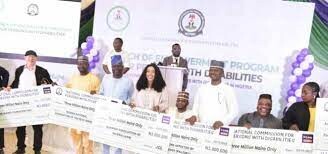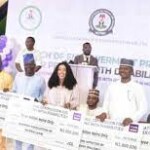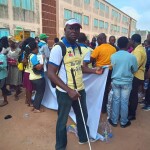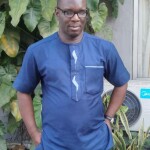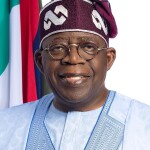When Nigeria’s No. 1 citizen with disability recently gushed about the materialization of President Bola Tinubu’s Renewed Hope campaign slogan, critical observers understood James Lalu yielded to his emotions.
One thing is for sure: Nobody knows the number of persons with disabilities (PWDs) in Nigeria. Not even the executive secretary of the National Commission for Persons With Disabilities (NCPWD) himself. But he and the Humanitarian Affairs Minister Betta Edu can always conjure figures ranging from 30 million to 35 million.
Applying the Pareto Principle (the law of vital few), 80 percent of them could be poor. The ratio is most likely spot-on. Estimates from the UN and other development watchers have confirmed PWDs constitute the bulk of the poorest in society thanks to inequality, discrimination, and lack of access.
So Lalu arming 150 lucky PWDs, among the lot, with a PoS machine each, and funding each with N100, 000 while Edu watched on unfolded like a melodrama. He could have known it. But he ignored stark realities, and fawned on Tinubu’s goodness. In his saccharin remark, he said the PoS machines and other handouts, including N130, 000 (scholarship) to PWDs in tertiary institutions, N20 million in annual grant to all organisations of persons with disabilities (OPDs), 10 percent of every social intervention service, and the Bank of Industry and the CAC officials guesting in on the ceremony were empowering enough; they all heralded the dawn of renewal—the renewal of the first hope he earlier proclaimed as real to the PWDs in the last administration.
Besides the eye-rolling joke Lalu’s effusion meant to the disability community was its promotion of inequality the commission has a mandate to end. Had the NCPWD woken up to its responsibilities of pressing home the available inclusive and empowerment policies, the raffle draw wouldn’t have happened in the first place. Or it could have taken a different dimension.
Millions of PWDs in Nigeria live under the radar of government coverage when it comes to social services. As of June, the National Social Safety Nets Coordinating Office covered just over 270,000 of them in its national database. The NCPWD itself has never been able to set up one of its own, despite that line item popping up annually in the commission’s budget. This is how conditional cash transfers and other palliatives various poverty-reduction policies provide elude millions who need them the most.
Policies and legal frameworks on empowerment have failed in like manner. There are no datasets with relevant data points to plan for the PWDs that seek financial or economic integration and empowerment. Most of the government entrepreneurship training schemes lack disability focus. Trainees, especially those with low education or none at all, have no exposure to relevant financial literacy modules. All these become an excuse for both government agencies and private players; they then surrender in frustration. But, in most cases, the surrender simply cloaks their discrimination and lack of faith in the ability of the PWDs to contribute to the macro-economy.
These financial institutions, however, project inclusion, still, as a matter of morality. And the farthest they go, especially government agencies, is hand out miserable amounts, ranging from N30,000 to N50,000, as grants to qualified entrepreneurs with disabilities. Where the lenders cannot help but take risk, access to loan application and the conditions for the loan become tougher for PWDs. The Lagos State Microfinance Bank, for instance, demands blind or deaf entrepreneurs, fresh out of training, produce tax clearance for six months as part of its loan conditions. The private ones demand an account balance that can offset, in two instalments, the amount of loan a PWD small business holder applies for. There are times some lenders give the loan to stand-ins (with no disabilities) whom the original loan seekers must bring as guarantors for disabilities.
It is just a matter of time before the Edu empowerment programme unravels. The Bank of Industry will soon begin structuring the loans to the PWDs, and face, frontally, the peculiarities of lending to this segment. The reality between portfolio growth and social development which they know but ignore will then rare up. The former will, no doubt, force the BoI to demand the PWDs meet conditions similar to those of the commercial banks’.
Ultimately, this gruelling funnelling bars millions of potential economic participants with disabilities from playing in the mainstream. ER recent survey of the deaf cluster in Lagos confirmed about 30 percent successful loan applications; it equally confirmed 50 percent success rate among the blind. Education, literacy, access to application, and training play a big role in the success rates.
The Discrimination Act, the CBN Financial Inclusion Policy, and others have taken care of these barriers one way or the other. Enforcing their provisions could have ensured a level-playing ground, and provided equal opportunities for all PWDs, not just the handfuls that luck into Tinubu’s kindheartedness. And where there are snags, fine-tuning the policies and tweaking the laws will work as well—for the greater good.
Throwing a few hundred PWDs some tidbits with a fanfare, and hamming it up in the media will only keep the so-called hope alive. Its realization will continue to elude millions of others.
To development observers, governments junking their own key disability policies for the best charitable deeds of their tenure is a path well-trodden. Lalu, the pioneer chairman of the NCPWD, has travelled that route. And he has not been able to carry the bulk of his community to the land his paymasters promised. That dream land always looms in the horizon, at the end of each tenure.
It will be self-denial, the worst of all denials, if Lalu carries on as usual in this administration.

